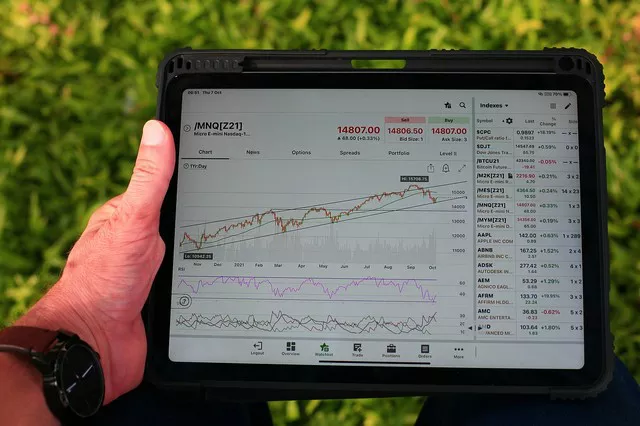Trading uranium futures is a topic that has garnered increasing interest among investors, traders, and industry professionals in recent years. As the demand for nuclear energy continues to rise and the global focus on clean energy solutions intensifies, uranium futures present an opportunity to participate in the uranium market and potentially capitalize on price movements. In this comprehensive guide, we will delve into the world of uranium futures trading, exploring the feasibility, opportunities, and considerations associated with trading this unique commodity.
Understanding Uranium Futures
What Are Uranium Futures?
Uranium futures are financial contracts that enable market participants to speculate on the future price of uranium. Similar to other commodity futures contracts, uranium futures represent an agreement to buy or sell a specified quantity of uranium at a predetermined price on a future date. These contracts provide exposure to the uranium market without the need to physically buy or store uranium.
Importance of Uranium Futures
Uranium is a crucial element in the production of nuclear energy, which plays a significant role in the global energy mix. As countries around the world seek to transition to cleaner and more sustainable energy sources, the demand for nuclear energy and, consequently, uranium is expected to increase. Uranium futures offer a means for investors to gain exposure to this market and hedge against price volatility.
Regulatory Landscape and Market Dynamics
Regulatory Considerations
Trading uranium futures is subject to regulatory oversight by financial authorities and commodity exchanges. Regulations governing futures trading vary by jurisdiction and may include requirements related to trading venues, margin requirements, position limits, and reporting obligations. Market participants should be aware of and comply with applicable regulations when trading uranium futures.
Market Dynamics
The uranium market is characterized by a relatively small number of producers and consumers, with a handful of countries dominating production and consumption. Factors influencing uranium prices include supply and demand dynamics, geopolitical developments, technological advancements, and regulatory policies related to nuclear energy. Understanding these market dynamics is essential for informed decision-making in uranium futures trading.
Exchanges Offering Uranium Futures Contracts
CME Group
The Chicago Mercantile Exchange (CME) Group is one of the leading providers of commodity futures contracts, offering a range of energy products, including uranium futures. CME’s uranium futures contracts are cash-settled and based on the UxC Uranium U3O8 Price Index, providing exposure to uranium prices without physical delivery.
Intercontinental Exchange (ICE)
The Intercontinental Exchange (ICE) also offers uranium futures contracts through its ICE Futures Europe division. ICE’s uranium futures contracts are financially settled and based on the UxC Uranium U3O8 Price Index, providing a means for market participants to manage their exposure to uranium prices.
Australian Securities Exchange (ASX)
The Australian Securities Exchange (ASX) offers uranium futures contracts as part of its suite of energy derivatives. ASX’s uranium futures contracts are cash-settled and based on the UxC Uranium U3O8 Price Index, providing access to the uranium market for investors and traders in Australia and beyond.
See Also: What is the Margin Required for USD INR Futures?
Factors Influencing Uranium Prices
Nuclear Energy Demand
The demand for nuclear energy is a primary driver of uranium prices. As countries seek to reduce carbon emissions and transition to cleaner energy sources, the demand for nuclear energy is expected to increase. Factors influencing nuclear energy demand include energy policies, electricity demand growth, and the development of new nuclear power plants.
Uranium Supply
Uranium supply is another key determinant of uranium prices. Uranium production is concentrated in a small number of countries, with Kazakhstan, Canada, and Australia being the largest producers. Factors influencing uranium supply include mine production, exploration activity, geopolitical developments, and regulatory policies affecting uranium mining.
Geopolitical Factors
Geopolitical developments can impact uranium prices by affecting supply chains, trade relationships, and market sentiment. Factors such as trade disputes, sanctions, political instability, and nuclear proliferation concerns can create uncertainty in the uranium market and contribute to price volatility.
Considerations for Uranium Futures Trading
Market Research
Before trading uranium futures, conducting thorough market research is essential. Analyze supply and demand fundamentals, monitor uranium prices and market trends, and stay informed about geopolitical developments and regulatory policies affecting the nuclear energy sector. Understanding these factors will help you make informed trading decisions.
Risk Management
Uranium futures trading involves inherent risks, including price volatility, geopolitical uncertainty, and regulatory changes. Implementing risk management strategies such as stop-loss orders, position sizing, and diversification can help mitigate these risks and protect your trading capital. Additionally, consider the potential impact of leverage on your trading positions and use leverage judiciously.
Trading Strategy
Developing a trading strategy tailored to your objectives, risk tolerance, and market outlook is crucial for success in uranium futures trading. Determine your entry and exit criteria, position sizing rules, and risk-reward parameters. Consider incorporating technical analysis, fundamental analysis, and market sentiment indicators into your trading approach.
Stay Informed
Staying informed about developments in the uranium market and related industries is essential for effective trading. Monitor uranium prices, industry news, regulatory announcements, and geopolitical events that could impact uranium prices. Utilize reputable sources of information and analysis to stay ahead of market trends and make informed trading decisions.
Conclusion
Uranium futures trading offers investors and traders the opportunity to participate in the global nuclear energy market and potentially profit from price movements in uranium prices. By understanding the regulatory landscape, market dynamics, and factors influencing uranium prices, market participants can make informed decisions and navigate the complexities of uranium futures trading. With proper research, risk management, and a disciplined trading approach, investors can unlock the potential of uranium futures and capitalize on opportunities in this dynamic market.

